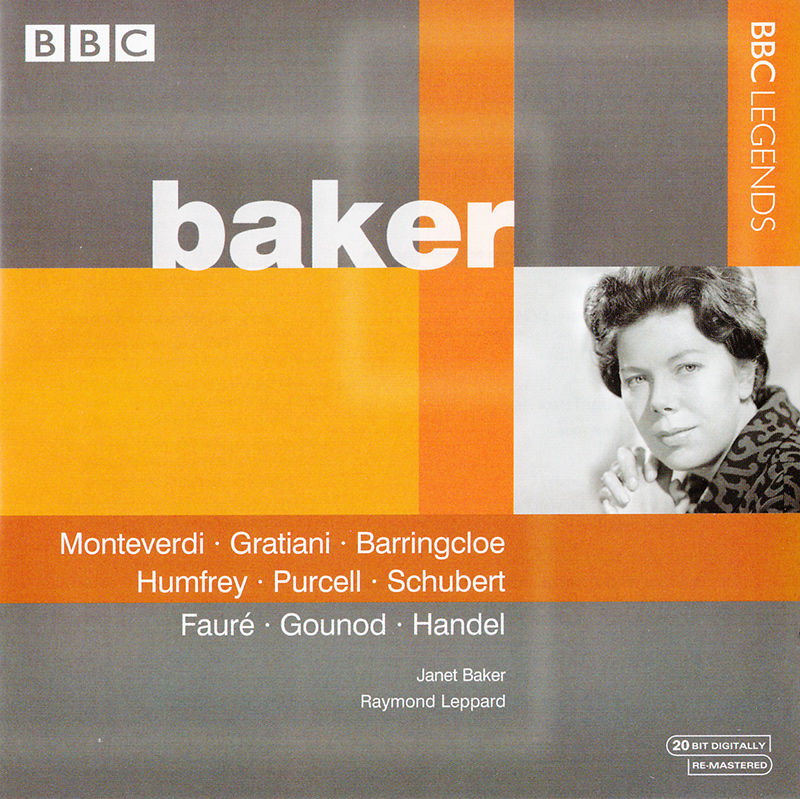Logowanie
Dlaczego wszystkjie inne nie brzmią tak jak te?
Chai Lang, Fan Tao, Broadcasting Chinese Orchestra
Illusive Butterfly
Butterly - motyl - to sekret i tajemnica muzyki chińskiej.
SpeakersCorner - OSTATNIE!!!!
RAVEL, DEBUSSY, Paul Paray, Detroit Symphony Orchestra
Prelude a l'Apres-midi d'un faune / Petite Suite / Valses nobles et sentimentales / Le Tombeau de Couperin
Samozapłon gwarantowany - Himalaje sztuki audiofilskiej
PROKOFIEV, Stanislaw Skrowaczewski, Minneapolis Symphony Orchestra
Romeo and Juliet
Stanisław Skrowaczewski,
✟ 22-02-2017
BARTOK, Antal Dorati, Philharmonia Hungarica
Dance Suite / Two Portraits / Two Excerpts From 'Mikrokosmos'
Samozapłon gwarantowany - Himalaje sztuki audiofilskiej
ENESCU, LISZT, Antal Dorati, The London Symphony Orchestra
Two Roumanian Rhapsodies / Hungarian Rhapsody Nos. 2 & 3
Samozapłon gwarantowany - Himalaje sztuki audiofilskiej
Winylowy niezbędnik
ClearAudio
Cartridge Alignment Gauge - uniwersalny przyrząd do ustawiania geometrii wkładki i ramienia
Jedyny na rynku, tak wszechstronny i właściwy do każdego typu gramofonu!
ClearAudio
Harmo-nicer - nie tylko mata gramofonowa
Najlepsze rozwiązania leżą tuż obok
IDEALNA MATA ANTYPOŚLIZGOWA I ANTYWIBRACYJNA.
Wzorcowe
Carmen Gomes
Celebrating the art and spirit of music - vol. 5 - Reference Songs
- CHCECIE TO WIERZCIE, CHCECIE - NIE WIERZCIE, ALE TO NIE JEST ZŁUDZENIE!!!
Petra Rosa, Eddie C.
Celebrating the art and spirit of music - vol. 3 - Pure
warm sophisticated voice...
SAMPLER - STS DIGITAL, Gregor Hamilton
Celebrating the art and spirit of music - vol. 2 - Love songs from Gregor Hamilton
...jak opanować serca bicie?...
SAMPLER - STS DIGITAL
Celebrating the art and spirit of music - vol. 1 - Leonardo Amuedo
Największy romans sopranu z głębokim basem... wiosennym
Lils Mackintosh
Celebrating the art and spirit of music - vol. 4 - A Tribute to Billie Holiday
Uczennica godna swej Mistrzyni
MONTEVERDI, GRATIANI, SCHUBERT, FAURE, GOUNOD, HANDEL, Dame Janet Baker, Raymond Leppard
Lieder
- Dame Janet Baker - mezzosopran
- Raymond Leppard - conductor
- MONTEVERDI
- GRATIANI
- SCHUBERT
- FAURE
- GOUNOD
- HANDEL
If this recital seems familiar to you, it may be because it was issued in 1996 with the "BBC Music Magazine", Vol. 4, No.7. The new release adds the interview, and the booklet has a short note. In neither case are the texts included (but these are downloadable!). The sound is good, with perhaps a bit more warmth in Paul Baily’s BBC Legends re-mastering. The CD deserves wider circulation, for Baker and Leppard have included some unusual fare. A listener’s reaction to a voice is so personal: to the basic sound, that is, before one listens to how the voice is being used. Sometimes we grow to like, or dislike, the sound; at other times and impression is made immediately. With some singers, that impression is no impression: the voice just is, neither attractive nor displeasing. I succumbed to Janet Baker’s sound on the first occasion that I heard it, and over many years since my opinion has not altered. Many are the instances in this Aldeburgh Festival recital when I just relish the timbre, be the lady bringing vitality and colour to the Monteverdi pieces, especially the second and third, or in Gratiani’s cantata, in whose eight minutes slow sections alternate with those in a quicker tempo, or when a solemnity imbues the ‘hymne’ “Wilt Thou forgive” by the short-lived Pelham Humfrey; even when sadness pervades, as in Schubert’s "Schwestergruss", involving the dead sister’s spirit. Baker sings this with quiet intensity. Janet Baker If, however, a singer relies purely on one sound, a recital can become monotonous in both senses. Janet Baker (a mezzo-soprano not a soprano as the annotation for this release has it) can introduce differing shades, varying emphases, without distorting her tone. In the five Schubert items, “Schwestergruss” and the subdued “An die untergehende Sonne”, this latter sung with volume reduced, tone softened, flank the two short arias from the unfinished 'singspiel', which are light and quick-moving. Baker adjusts her approach and vocal colours to suit the different settings. In line with the Claudine pieces is the Purcellian hymn by the mysterious Mr Barringcloe, whose dates and Christian name are unknown. His is a joyous piece lasting two and a half minutes, with Baker catching the exultant expression. In contrast, she conveys Bonduca’s opposing thoughts, from peaceful gloom to triumphant glory, while in “Ah! Cruel, bloody fate” she calmly delivers the humour of the last three lines of this strophic song. Does she use a little too much voice in Fauré’s “Soir”, and is Gounod’s “Sérénade” somewhat on the slow side, missing the airiness that seems essential? She omits one of the three verses. Throughout the Handel aria she trips with happy step, notes clearly articulated and with touches of decoration in the da capo. This is a very enjoyable recital, presenting the serious and light-hearted sides of Janet Baker’s artistry, and she really is in excellent voice. Raymond Leppard, whether on harpsichord or piano, proves a worthy partner, adding pleasing flourishes in some of the early pieces. Joy Hall provides excellent support to the harpsichord.
























